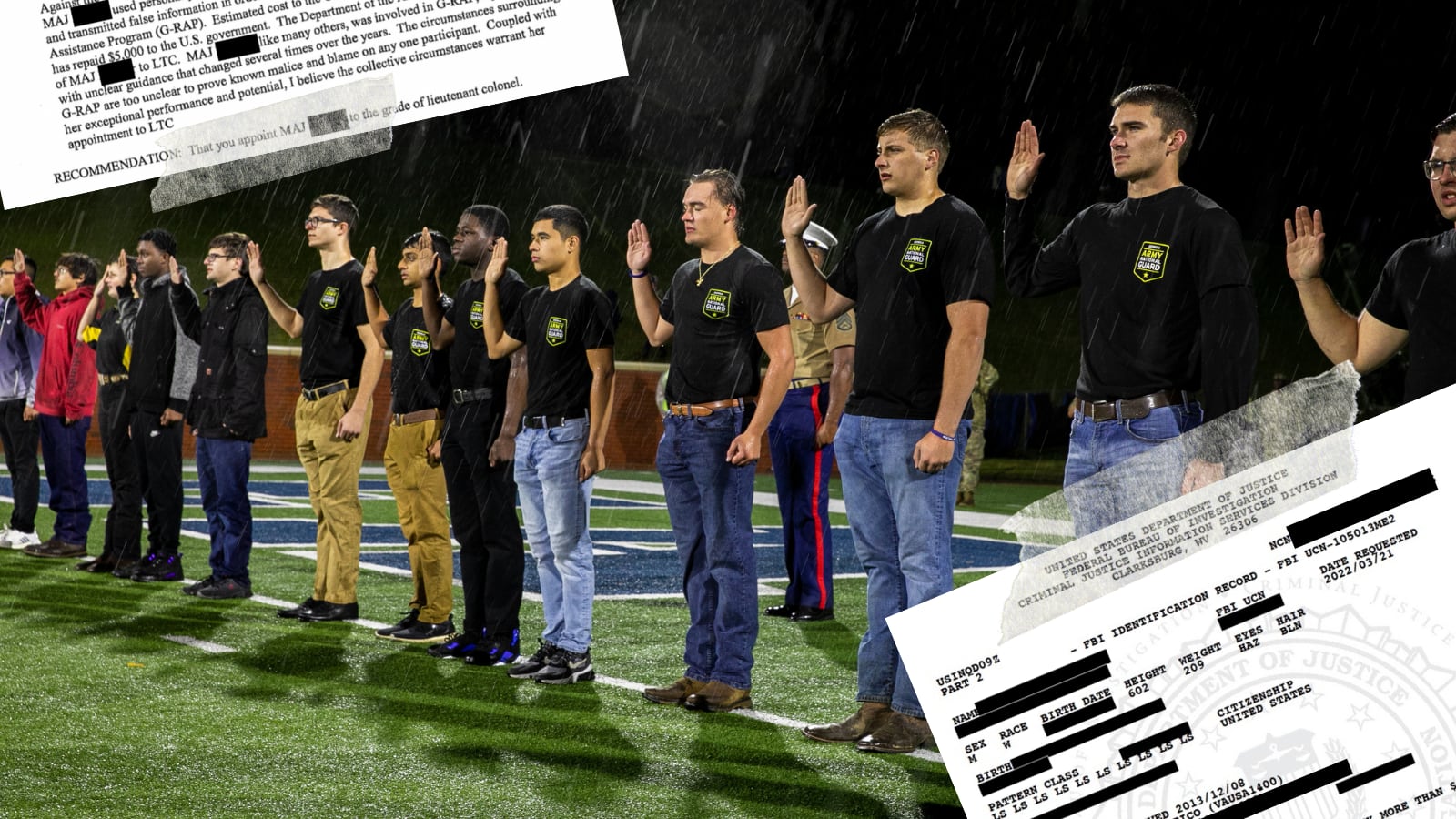Congress may soon set a timeline for the Army’s corrections to criminal history databases for as many as 1,900 soldiers and vets who might have been erroneously punished in a recruiting referral bonus scandal.
In November, Army Criminal Investigation Division officials told reporters that the agency inappropriately added 1,900 servicemembers to Defense Department and FBI criminal databases during the course of a major investigation into alleged fraud in the Guard Recruiting Assistance Program.
The program offered referral bonuses to members who provided recruiters with successful leads between 2005 and 2012, but allegations of fraud shut it down and led to Task Force Raptor — one of the largest CID investigations of all time. Agents looked into tens of thousands of referral payments, entering thousands of troops into the FBI arrest database, officials said.
In many cases, these “titling” and “indexing” entries occurred whether the subjects were ever arrested or charged with a crime in the investigation. Only 137 people were prosecuted for alleged wrongdoing, officials said.
A new provision in the fiscal 2023 National Defense Authorization Act released late Tuesday would require the Army to complete the review within 180 days of the bill becoming law. Officials previously indicated that the review would extend into 2023 for some cases. The proposed law also directs the service to report how many people were or weren’t cleared, and the reasons why any people have not been cleared.
The Defense Department will also have to conduct a broader review of titling and indexing across the services, according to the draft law, focused on “the suitability of the evidentiary requirements” for the practices and developing “recommendations, as appropriate, to improve the consistency, accuracy and utility of the titling and indexing processes.”
Amid the reviews, at least two soldiers have already been cleared, and they want to know: what will the Army do to make it up to them?
A pair of officers — Capt. Gilberto De Leon and Capt. Justin Tahilramani — have received formal notification from Army Criminal Investigation Division officials that they will be removed from a Defense Department database for individuals who were subject to criminal investigation and from a Federal Bureau of Investigation criminal history database. Both De Leon and Tahilramani, who were featured in an April Army Times investigation into the consequences they and others have faced, shared their clearance letters with Army Times. Fox News first reported De Leon’s status.
RELATED

Both officers had promotions to major derailed by their connection to the investigation, even though neither was ever charged with a crime. As a result, both were compelled to depart the active duty force in order to go to the reserve components in an effort to protect a portion of their military retirement benefits.
But now the Army has admitted that the administrative punishments that stopped their promotions should have never happened.
So how does that get fixed?
Attorney Doug O’Connell, a retired Special Forces colonel, represents both officers in their ongoing legal battles with the Army.
He told Army Times in a phone interview that service officials have instructed his clients to petition the Army Board for Correction of Military Records to have their promotions reinstated and potentially open the door back to active duty service. But O’Connell pointed at the lengthy wait list for corrections board review requests, which are processed in the order in which they’re received, as standing in the way of timely justice.
“I’ve had other G-RAP clients go through the ABCMR. It took them two-and-a-half years, and they were denied relief,” the attorney explained. And even if Army officials expedite the review for high-profile G-RAP appellants, O’Connell is “very conflicted about that. Because all [the other applicants] with ABCMR petitions have to wait longer now.”
De Leon said he feels he shouldn’t have to go through the corrections board process, asking why he and others should have to deal with “more trauma.”
His counterpart Tahilramani, who was a contracting officer before he left active duty to avoid the punishment causing him to be passed over for promotion for a second time, agreed.
“The onus shouldn’t be on me,” he said. “It’s almost like a slap in the face.”
O’Connell said it would take an act of Congress to create a shortcut for administratively redressing members unfairly impacted by the investigation. But the proposed amendment doesn’t address backpay, reinstating promotions or any other redress for those who are cleared.
Other forms of justice might take longer, and they may involve the courts, the attorney said.
He argued that may be the only way to fix things for those who were already harmed in civilian life by the false criminal history entries — “the folks that were denied jobs, or fired from jobs,” or struggled to obtain professional licenses to launch careers in fields like law, medicine or real estate.
“Those damages can only be addressed, we believe, by a federal court via lawsuit,” O’Connell said. “We expect to be filing [administrative] claims in January...and then start filing lawsuits in July.”
Military Times staff reporter Jonathan Lehrfeld contributed reporting to this story.
Davis Winkie covers the Army for Military Times. He studied history at Vanderbilt and UNC-Chapel Hill, and served five years in the Army Guard. His investigations earned the Society of Professional Journalists' 2023 Sunshine Award and consecutive Military Reporters and Editors honors, among others. Davis was also a 2022 Livingston Awards finalist.





